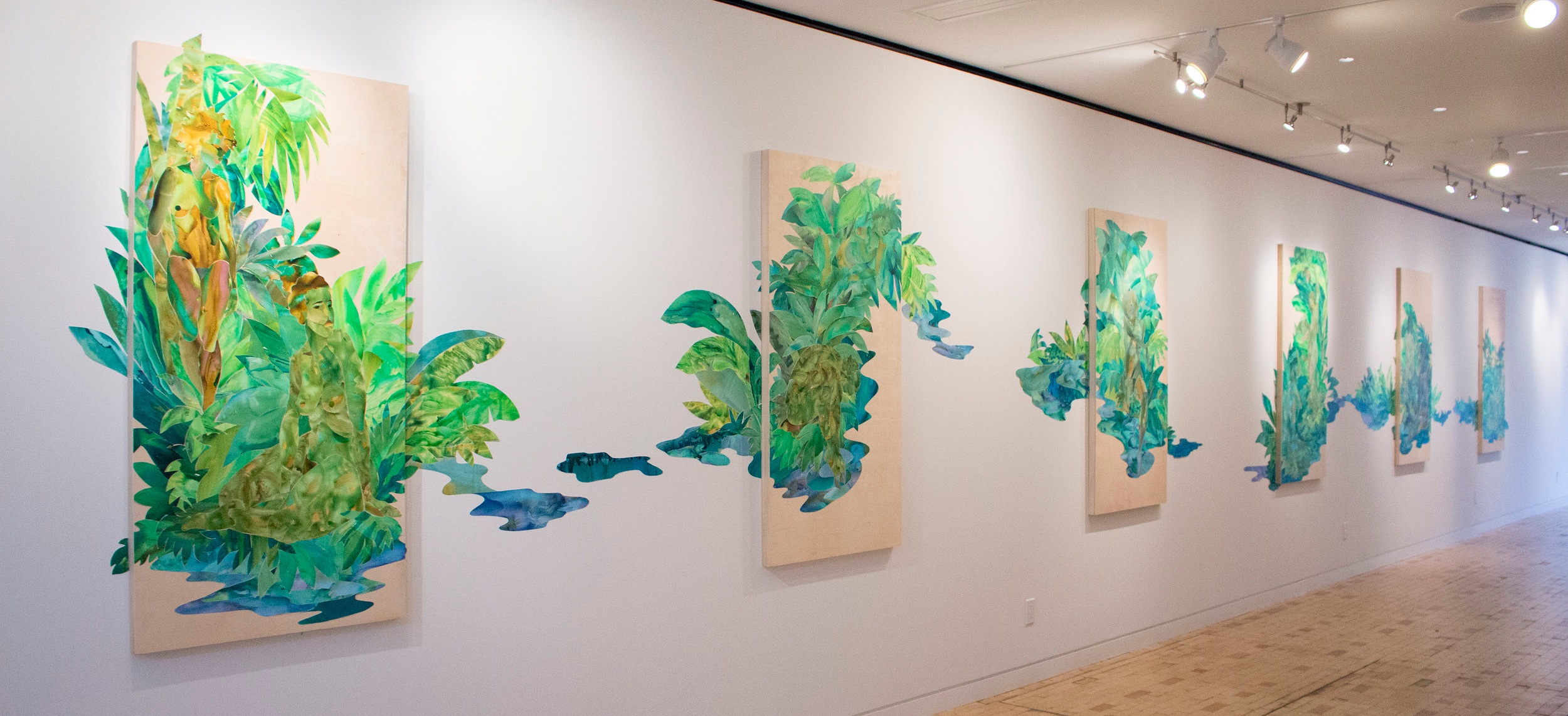Terra Incognita
2019, Ink on yupo on panel and wall (wood panels are 60 x 30 inches each)
Lush forests of exotic plants are a familiar sight even in the postcolonial house-hold; potted, domesticated, and genetically modified for an audience that views them as a common and expected presence. Yet, these plants are visual and cultural reminders of a not-quite-past colonial occupation in the tropics. Domestication is evidence of domination; a fact that Adrienne Elise Tarver explores with her multidisciplinary practice through interrogating documented histories. Her work disengages the Western lens by considering the historical perspectives of black and brown women.
“Terra Incognita” historically labeled unknown regions on medieval and renaissance maps. These spaces were filled with monstrous fantasies and unfamiliar beasts by cartographers and artists who hoped to emphasize the otherness of the unknown. Now, satellite imaging, google maps, and the solidification of national boundaries work together to create an image of a finite world, mapped out to its edges and fully defined. Do unknown people and places still hide at the edges of the charted world? With this large scale collage, Tarver proposes that our maps remain incomplete. Physical topography has been graphed and measured, but unfixed cultural space remains dominated by colonial impositions. Artists like Paul Gauguin and Henri Rousseau command the collective imaginary, the ‘canon,’ of tropical paradise. But Edenic space is an uncharted wonderland, full of potential alternative histories that await exploration.
With this installation, Tarver claims space in Eden; recentering the narrative of the garden of Paradise around matriarchal society. Tarver’s Eden is populated by historical, mythological, and literary heroines similar to those found in the American pop-imaginary like Wonder Woman, Queen Califia, or the Sirens. Fundamentally, it challenges the heteropatriarchal definition of paradise, utopia, sin, and heroism. Adrienne Elise Tarver is redefining a cultural space as a means of resurfacing matriarchal histories lost to colonial domination and genocide, and through creating this installation, she acknowledges the importance of making space for alternative histories to be written. Terra Incognita explores the arena of the pre-domestic, the pre-colonial, and the pre-patriarchal, planting the seeds of an alternate, unknown history.
Adrienne Elise Tarver discusses her work in “History Reclaimed: Suchitra Mattai & Adrienne Elise Tarver” at Hollis Taggart Contemporary, New York.








